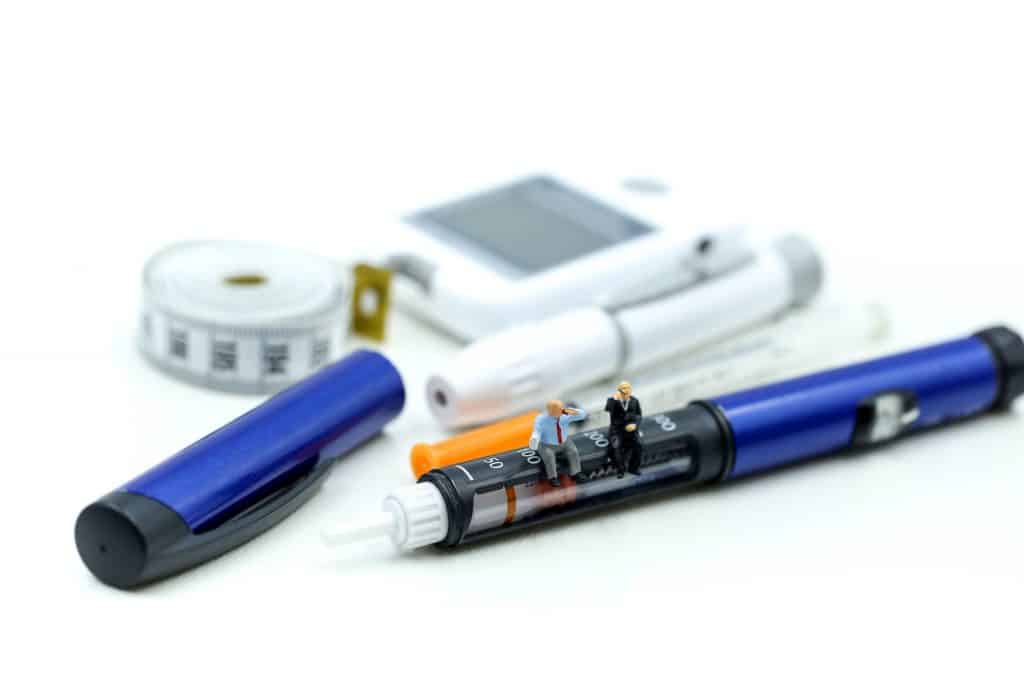Trulicity vs Victoza – Similarities, Differences, Which is Most Effective
Posted by Prescription Hope - See Editorial Guidelines (Last Updated On: Tue Apr 25 2023)
There are many medications that can be prescribed to treat type 2 diabetes, some of which are very similar. So, deciding which one is right for you can be difficult and sometimes confusing. Therefore, we will cover Trulicity vs Victoza.
We will discuss the similarities, differences, side effects, and which is better when it comes to Trulicity and Victoza. First, here is a quick answer to get you started.
Trulicity vs Victoza: Trulicity and Victoza are both non-insulin medications that are prescribed to treat type 2 diabetes. Both of these medications are administered through injection and work similarly by helping the pancreas work properly. However, Victoza must be injected daily versus weekly with Trulicity.
Now that you have a basic understanding, let’s cover this topic in more detail.
What is Trulicity?
Trulicity is a once-weekly injected medication that is prescribed to help patients lower their blood sugar levels and potentially lose weight. It is not insulin. This medication has been known to help patients reduce their risk of heart attack, stroke, or other cardiovascular events.
What is Victoza?

Victoza is a prescription medication that is injected once a day to help those with type 2 diabetes control their blood sugar levels. This medication is also not insulin. Victoza may also be used to reduce one’s risk of cardiovascular events, such as heart attack or stroke.
How Each Works
Trulicity and Victoza work in very similar ways. Both of these medicines trigger insulin secretion and decrease the amount of glucose produced by the liver.
Trulicity comes in a single-dose pen so that you do not have to handle needles. The patient does not need to mix any medications to make it work. They simply push the button on the pen to deliver the dose once a week. Patients should strive to inject Trulicity on the same day every week. Trulicity comes in doses of 0.75 mg or 1.5 mg.
On the other hand, Victoza has to be injected every day. The pen used for Victoza contains 18 mg of medicine and provides doses of 0.6 mg, 1.2 mg, or 1.8 mg. Needles for the pen will need to be purchased separately.
It is important to note whether you are using Victoza or Trulicity, talk to your doctor about the proper way to administer your dose.
Both Trulicity and Victoza should be injected into the abdomen, upper arm, or thigh. Avoid injecting into veins or muscles.
Side Effects of Trulicity vs Victoza
Side Effects of Trulicity may include:
- Nausea
- Diarrhea
- Vomiting
- Abdominal pain
- Decreased appetite
Rare but serious side effects are also possible with Trulicity, which may include:
- Pancreatitis (inflammation of the pancreas)
- Changes in vision
- Low blood sugar (hypoglycemia)
- Acute kidney injury
- Severe stomach problems
- Serious allergic reactions
The most common side effects of Victoza may include:
- Nausea
- Diarrhea
- Vomiting
- Decreased appetite
- Indigestion
- Constipation
Rare but more serious side effects that are possible with Victoza, may include:
- Pancreatitis
- Low blood sugar
- Kidney problems
- Gallbladder problems
- Serious allergic reactions
Safety Information and Risks Comparison of Trulicity vs Victoza
Trulicity and Victoza both have important safety information and warnings that patients should adhere to.
Trulicity Important Safety Information:

- Trulicity should be taken along with diet and exercise for patients to see results.
- Trulicity is not insulin and must not be used to treat type 1 diabetes or diabetic ketoacidosis.
- Never share your Trulicity pen or needles with another person. Doing so can put you or someone else at risk of having infections.
- This medication may cause thyroid tumors, which may be cancerous. Individuals must watch for symptoms, including swelling in the neck, lumps, trouble swallowing, hoarseness, or shortness of breath.
- You should not use Trulicity if you or your family has had medullary thyroid carcinoma (MTC) or Multiple Endocrine Neoplasia syndrome type 2 (MEN 2).
- You must not receive treatment with Trulicity if you are allergic to any of the ingredients.
- Notify your doctor if you are pregnant or may become pregnant before taking Trulicity.
- Let your doctor know if you have ever had pancreatitis.
- This medicine may not be right for you if you are under 18 years old.
- If you take too much Trulicity, then call your doctor and seek immediate medical attention.
Victoza Important Safety Information:
- Let your doctor know if you have had problems with your pancreas, kidneys, or liver before taking Victoza.
- Before taking Victoza, let your doctor know if you have had severe stomach problems, such as gastroparesis.
- Talk to your doctor if you are pregnant, may become pregnant, or are breastfeeding.
- Never mix your Victoza injection with insulin.
- Never share your Victoza pen with another person, even if the needle has been changed.
- Victoza is not insulin and must not be used to treat type 1 diabetes or diabetic ketoacidosis.
- It is not known if this medication will be effective in lowering blood sugar levels in patients under 10 years of age.
- Call your doctor and seek immediate medical attention if you begin to have signs of an allergic reaction.
Cost Comparison of Trulicity vs Victoza
The out-of-pocket cost for Victoza is around $683 for 6 milliliters and $1,020 for 9 milliliters. If you obtain your Victoza medication through Prescription Hope, then it cost just $60.00 a month through Prescription Hope’s medication access service .
The out-of-pocket cost for Trulicity is about $841 for a supply of 2 milliliters. If you obtain your Trulicity medication through Prescription Hope, then you can expect to pay just $60.00 a month through Prescription Hope’s medication access service .
It is important to note that the prices mentioned above do not take into account insurances or other discounts. The price you actually pay will vary depending on the type of insurance you have.
Storing Trulicity and Victoza
When it comes to the storage of Trulicity vs Victoza, they should be stored in similar ways. Both medications should be stored in the refrigerator between 36-46 degrees Fahrenheit. Neither one of these medications should be frozen.
The only difference between Trulicity vs Victoza storage comes with how long each can last outside the fridge at room temperature. If Victoza is left out of the refrigerator, then it can last up to 30 days. After 30 days, it should be discarded. Trulicity, on the other hand, can only last up to 14 days outside of the refrigerator.
Which is Most Effective
Both Trulicity and Victoza have been shown to be effective at reducing blood sugar levels in those that suffer from hyperglycemia. The decision for which medication you use should be made between you and your doctor.
Your doctor can recommend one over the other based on your specific condition and your risk of serious side effects. The decision for which medicine you use will also depend on your personal preference and if you prefer daily or weekly injections.
Conclusion
We hope this has given you a better understanding of Trulicity vs Victoza so that you can make an educated decision on which one is right for you. You should never change the medications you are on or start taking a new medication without first consulting your doctor.
If you are struggling to afford your medication, then Prescription Hope can help. We work directly with pharmaceutical manufacturers to provide patients with the medicine they need at a set, affordable cost. Enroll with us and start paying just $60.00 a month through Prescription Hope’s medication access service per prescription drug.
ENROLL



